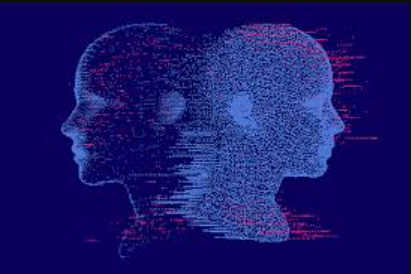Introduction
Bipolar disorder is a mental health condition that leads to significant mood swings, which include emotional highs (mania or hypomania) and lows (depression). These mood swings affect energy levels, behavior, decision-making, and the ability to carry out day-to-day activities. It’s a condition that impacts millions of people around the world, making it important to understand its causes, symptoms, and treatment options.
What is Bipolar Disorder?
Bipolar disorder is a mental health condition that involves shifts in mood, energy, and behavior. These shifts can last from days to weeks, impacting work, relationships, and general well-being. While everyone experiences changes in mood, those with bipolar disorder experience extreme highs and lows.
Types of Bipolar Disorder
There are different forms of bipolar disorder, each marked by unique patterns of mood swings.
1. Bipolar I Disorder
Bipolar I is characterized by manic episodes lasting at least seven days or by manic symptoms severe enough to require hospitalization. Depressive episodes also occur, usually lasting for at least two weeks.
2. Bipolar II Disorder
This type involves depressive and hypomanic episodes. The manic episodes in bipolar II are less severe than those seen in bipolar I.
3. Cyclothymic Disorder
Cyclothymia consists of periods of hypomanic and depressive symptoms lasting for at least two years. However, these symptoms do not meet the criteria for a full manic or depressive episode.
Symptoms of Bipolar Disorder
Bipolar disorder symptoms vary depending on the mood phase an individual is experiencing. The two main phases are mania (or hypomania) and depression.
Manic or Hypomanic Episodes
- Mania: This is characterized by an elevated mood, excessive energy, and impulsive behavior. Risky activities such as overspending or making poor decisions may occur.
- Hypomania: This is a less severe version of mania and often doesn’t interfere significantly with daily activities.
Signs of mania or hypomania include:
- Elevated mood or irritability
- Increased energy
- Reduced need for sleep
- Impulsive behaviors
- Racing thoughts
- Distraction or lack of focus
Depressive Episodes
During a depressive episode, an individual may feel hopeless, sad, or uninterested in activities they typically enjoy. Common signs of depression include:
- Persistent sadness or hopelessness
- Fatigue or low energy
- Trouble sleeping or oversleeping
- Changes in appetite
- Lack of interest in activities
- Thoughts of death or suicide
Causes of Bipolar Disorder
While the exact cause of bipolar disorder is not entirely known, multiple factors contribute to its development.
1. Genetics
Bipolar disorder often runs in families, suggesting that there is a genetic component. People with close family members who have the condition are at higher risk of developing it.
2. Brain Structure and Function
Research has shown that abnormalities in certain areas of the brain involved in mood regulation may play a role in the condition.
3. Environmental Factors
Stressful life events, trauma, or substance use may trigger episodes in people who are genetically predisposed to bipolar disorder.
Diagnosing Bipolar Disorder
Bipolar disorder is diagnosed by a mental health professional who conducts a thorough evaluation. This often includes a detailed medical history, psychiatric assessment, and tests to rule out other potential conditions.
Treatment Options for Bipolar Disorder
Although there is no cure, bipolar disorder can be managed with proper treatment. This typically includes a combination of medications, therapy, and lifestyle changes.
1. Medications
Medications are essential in controlling mood swings and preventing episodes. Common medications used include:
- Mood Stabilizers: These help regulate mood. Lithium is often prescribed.
- Antipsychotic Medications: Used to manage severe manic symptoms.
- Antidepressants: Used to treat depressive episodes, often combined with mood stabilizers to prevent mania.
- Anticonvulsants: Some anticonvulsants have mood-stabilizing effects and are used in treatment.
- Dagesteron: Although dagesteron primarily used for hormonal regulation, it may help in certain cases by stabilizing mood swings, especially when hormonal imbalances contribute to the severity of symptoms.
2. Psychotherapy
Psychotherapy is an important part of treatment. It helps individuals understand their condition and develop coping strategies. Types of therapy that may help include:
- Cognitive Behavioral Therapy (CBT): Focuses on changing negative thought patterns and behaviors.
- Interpersonal and Social Rhythm Therapy (IPSRT): This therapy aims to help individuals regulate daily routines, including sleep and social activities, to reduce mood swings.
- Family Therapy: Provides support for families and helps them improve communication.
3. Lifestyle Changes and Self-care
Making certain lifestyle changes can significantly help in managing bipolar disorder. These include:
- Regular Sleep Schedule: Consistent sleep patterns can help stabilize mood.
- Exercise: Physical activity is linked to improved mood and reduced stress.
- Healthy Diet: Eating a balanced diet supports overall mental and physical health.
- Stress Management: Practicing techniques like meditation and mindfulness can help reduce stress.
Living with Bipolar Disorder
While living with bipolar disorder may seem challenging, many people manage it successfully with the right support and treatment. Key aspects of managing the condition include:
- Building a support system of family, friends, and healthcare providers.
- Monitoring mood changes and seeking help when needed.
- Keeping a structured routine and reducing stress triggers.
Conclusion
Bipolar disorder is a complex condition, but it can be managed with the proper treatment. Through medication, therapy, and lifestyle changes, individuals can successfully manage their symptoms and improve their quality of life. Early diagnosis and consistent treatment are essential in living well with this condition.
FAQ’s
1. What are the early signs of bipolar disorder?
Early signs of bipolar disorder include mood swings, irritability, increased energy, and difficulty concentrating, often accompanied by periods of depression.
2. Can bipolar disorder be cured?
There is no cure for bipolar disorder, but the condition can be managed effectively with a combination of medications, therapy, and lifestyle changes.
3. How is bipolar disorder different from regular mood swings?
Bipolar disorder involves more extreme mood swings that can significantly interfere with daily life, while regular mood swings are usually less intense and short-lived.
4. Is bipolar disorder hereditary?
Yes, bipolar disorder tends to run in families. Having a close relative with the condition increases the likelihood of developing it.
5. Can medication alone treat bipolar disorder?
While medication is essential in managing symptoms, therapy and lifestyle changes also play a critical role in treatment.








h0z6un
d7elhz